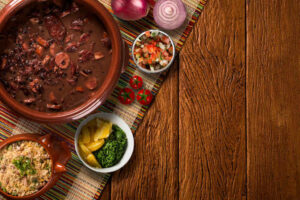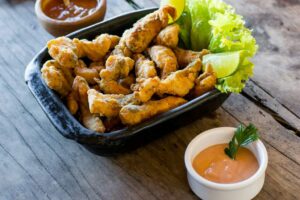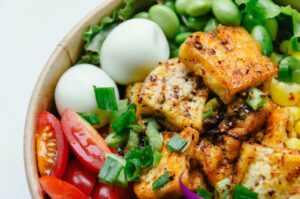Celebrated on October 1st, World Vegetarian Day currently sheds light not just on one cause. Market data shows that adopting meat-free diets is a trend, with the number of followers growing more and more. It is estimated that around 30 million Brazilians are vegetarians: the survey, carried out by Ibope in 2018, indicates an increase of 75% in relation to 2012, when approximately 8% of the population declared themselves to be vegetarians.
“In 2017, 63% of Brazilians already wanted to reduce their meat consumption. Knowing that almost half of the population already does it, at least once a week, highlights the growth in the number of supporters”, commented Mônica Buava, Executive Director of the Brazilian Vegetarian Society (SVB), in relation to the Ipec 2021 survey, which points out that 46% of Brazilians already stop eating meat, of their own free will, at least once a week.
“Here in Brazil, there is a tendency for a continuous increase in the number of vegetarian restaurants or those that offer options to this public. And access to them is democratic, it is possible to find restaurants with PF (Prato Feito) at R$10”, he commented.
 Photograph: Monica Buava, Executive Director of the Brazilian Vegetarian Society (SVB)
Photograph: Monica Buava, Executive Director of the Brazilian Vegetarian Society (SVB)
At the Capitania restaurant, located in Olinda, Pernambuco, the vegetarian and vegan menu is a priority. “Capitania emerged in 2008 and, four years ago, we started bringing vegetarian and vegan options to the menu. The first dish of this type that we included was mangará, which was very successful. Today, we have a range of options. In fact, I am planning to implement a line of vegan frozen foods to meet the high demand”, explained chef Alice Elihimas.

Photo: Chef Alice Elihimas
In the wake of the trend, new markets and opportunities also emerge. Plant-based meat, for example, is expected to generate around US$ 5.8 billion in 2022, according to a study by Grand View Research. In 2019, the sector's total revenue was US$ 939 million (Good Food Institute and Plant Based Food Association).
In Brazil, the consumption of healthy foods has been growing in recent years. This is confirmed by a study by Euromonitor: the country is the fourth largest market in the world, with a sector that generates US$$ 35 billion per year. On iFood, a thermometer of eating habits across the country, the results point in the same direction: from January to August 2021, the app recorded an increase of 40% in vegetarian orders, compared to last year. According to foodtech, there were more than 700 thousand orders during the period.
However, opting for a vegetarian lifestyle goes far beyond what you put on your plate. For Victor Sanches, Yoga teacher and profile creator RotaVEG, the choice reflects a lifestyle. “I have been vegan for 7 years and started practicing vegetarianism at 20. It was through the practice of Yoga that I got to know this universe. For me, it makes a lot of sense, as it represents a way of protecting animals and the environment”, he explained.
“It is important to understand what this choice represents. Thinking that change is an attitude that starts with the individual, but impacts the collective, helps a lot. It is a good thing that people will do for themselves, their health, animals and the environment, impacting issues such as deforestation and water waste.”

Photo: Victor Sanches, Yoga Teacher and creator of the RotaVEG profile
What does a vegetarian diet consist of?
iFood News spoke with nutritionist Natália Alcântara, a specialist in vegetarian nutrition, to clarify doubts and demystify the topic.
iFN: Much is said about meat as a fundamental protein. Is it really necessary?
AT: Meat consumption is something very cultural and social, but it is not physiological. In other words, it is not essential to human health. It is in legumes that we can find our greatest source of vegetable protein, such as beans, peas and lentils, for example.
IFN: To be a vegetarian, do you need to spend a lot?
AT: No, we can assume that all foods are cheaper than meat nowadays. Meat is at the top of Brazilians' list when it comes to spending on food. A plant-based diet is not expensive and still offers a multitude of possibilities and combinations. This food option only becomes expensive when the person implements ready-made items, such as vegan dairy products, for example; but these are not essential for a healthy diet.
IFN: How does a vegetarian solve the need for vitamin B12?
AT: There is no source of B12 of plant origin, and therefore, at some point the vegetarian or vegan will need this implementation, which can be done through supplementation and medical monitoring. It is important to highlight that even omnivorous individuals (who consume meat) and lacto-ovo vegetarians may need B12 in their bodies and resort to the supplement.
IFN: What is the difference between someone being a strict vegetarian and a lacto-ovo vegetarian?
AT: Strict vegetarians have a diet free of any animal derivatives. Lacto-ovo vegetarians can consume eggs, milk and dairy products, and honey.



